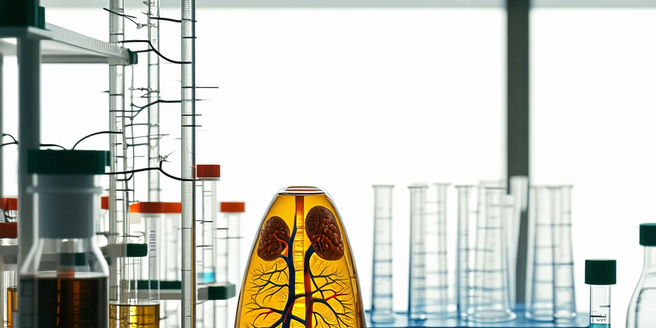
Understanding ALS: A Brief Overview
| Aspect | Description | Relevance |
| Definition | ALS stands for Amyotrophic Lateral Sclerosis. | Understanding the medical terminology is crucial. |
| Causes | The exact cause of ALS is unknown. | Identifying potential triggers remains important. |
| Symptoms | Includes muscle weakness and difficulty speaking. | Recognizing symptoms early can assist in management. |
| Progression | The disease typically progresses over time. | Understanding the progression helps in planning care. |
| Treatment | No cure, but treatments can alleviate symptoms. | Timely interventions can improve quality of life. |
| Support | Involves medical, emotional, and social support. | Holistic care approach is essential for patient well-being. |
Key Symptoms and Diagnosis of ALS
Amyotrophic lateral sclerosis (ALS) is a progressive neurodegenerative disease that affects nerve cells in the brain and spinal cord. Early symptoms can be subtle and might include muscle cramps, stiffness, and weakness. As the disease progresses, muscle weakness predominantly in arms, legs, and speech-swallowing muscles becomes more apparent, often leading to serious impairment in mobility and communication. Unfortunately, the progression of ALS can vary significantly from person to person, complicating the prognosis and management of the disease. Diagnosis of ALS is complex, relying heavily on clinical assessments and tests such as electromyography and MRI to rule out other conditions. There is no single test to confirm ALS, making early and accurate diagnosis challenging but crucial for implementing a supportive care plan.
Medical Treatments for ALS Patients
Treating ALS involves managing symptoms and improving the patient’s quality of life, as there is no cure available. In recent years, there has been an increased focus on developing personalized treatment plans. Medications such as Riluzole and Edaravone may help slow down disease progression and reduce symptom severity. In some cases, innovative therapies are being explored to provide additional options for patients. Additionally, muscle relaxants and pain management drugs are commonly prescribed to alleviate discomfort. Non-drug approaches, such as respiratory care, nutritional support, and physical therapy, play a significant role in comprehensive treatment plans. These treatments aim to address secondary complications, enhance daily functioning, and maintain independence as much as possible, emphasizing the need for personalized care along the disease’s trajectory.
The Role of Caregivers in ALS Management
Caregivers serve as the backbone for individuals diagnosed with ALS, providing essential support and assistance in day-to-day tasks. They play a crucial role in managing physical needs like mobility, medication administration, and dietary requirements while also extending emotional and psychological support to both the patient and their family. Caregivers often act as advocates, ensuring communication between the medical team and the patient, which is vital for effective care coordination. The emotional toll and stress caregivers face are often underestimated, highlighting the need for robust support systems. Moreover, their involvement in decision-making helps navigate the complexities of the illness, emphasizing the importance of caregiver support, education, and respite to sustain their well-being and effectiveness.
Assistive Technologies for Improved Living
Assistive technologies significantly enhance the quality of life for ALS patients by promoting independence and accessibility. Speech-generating devices and communication apps help patients maintain their voice and connect with their loved ones. Mobility aids, such as wheelchairs and lift systems, provide much-needed assistance in navigating various environments. As new innovations emerge, the options available to ALS patients continue to expand. The integration of these technologies into daily care routines can make a profound difference. Additionally, adaptive tools for eating, dressing, and daily activities streamline routines and empower patients to retain as much autonomy as possible. The continuous advancements in technology offer promising solutions tailored to each stage of ALS, facilitating an improved standard of living and fostering greater engagement in daily life.
Nutritional Support for ALS Patients
Nutrition plays a pivotal role in managing ALS, as it directly impacts overall health and muscle strength. It is essential to understand the unique nutritional needs of each individual with ALS. As the disease progresses, swallowing difficulties may arise, necessitating modifications in diet consistency and increased caloric intake to prevent malnutrition. Regular consultations with healthcare providers can help optimize dietary strategies. Dietitians often recommend high-calorie and nutrient-dense meals, supplemented with easy-to-consume, fortified foods or liquid nutrition. Ensuring proper hydration and addressing specific dietary needs through tailored meal plans is crucial. Close monitoring of nutritional intake allows for timely adjustments, supporting the patient’s energy levels and aiding in the management of ALS-related health complications.
Physical Therapy and Exercise Routines
Physical therapy is a cornerstone of care for ALS patients, focusing on maintaining physical function and reducing discomfort. An interdisciplinary approach can further enhance the benefits of therapy by incorporating occupational therapy and speech therapy. Customized exercise routines are designed to improve mobility, reduce muscle stiffness, and strengthen unaffected muscles, all while prioritizing patient safety and comfort. Regular assessments of the patient’s condition are crucial to adjust therapy plans effectively. Stretching and range-of-motion exercises are beneficial in alleviating joint rigidity and supporting circulation. Collaboration with a skilled physical therapist ensures that exercise plans are adapted to the patient’s evolving needs, promoting long-term physical activity and preserving the patient’s ability to perform daily tasks independently as much as possible.
Emotional and Psychological Support
The emotional and psychological impact of ALS on both patients and their families cannot be understated. Providing support through counseling, support groups, and mental health services plays a vital role in managing the psychological burden associated with the disease. Adjusting to life with ALS involves coping with anxiety, depression, and changes in self-image, requiring an empathetic approach from healthcare providers and caregivers. It is crucial to tailor support services to meet the unique needs of each individual and their family. Early intervention in these areas can significantly ease the transition for those affected. Encouraging open communication and fostering a support network can alleviate feelings of isolation and helplessness, thereby improving overall emotional well-being and quality of life.
Community Resources and Support Groups
Accessing community resources and support groups is crucial for individuals living with ALS and their families, providing a platform for shared experiences and encouragement. These groups offer emotional solace, practical advice, and up-to-date information on treatment advancements and trials. Participating in these groups can significantly improve the mental health and coping mechanisms of those involved. Engaging with such groups often leads to lifelong friendships and unwavering mutual support. Being part of a supportive community helps reduce feelings of isolation and connects families with others facing similar challenges. Furthermore, community-based resources extend assistance in caregiving, transportation, and respite services, easing the daily burdens of managing ALS and enhancing the network of support available to patients and their loved ones.
Future Directions in ALS Research and Care
Ongoing research in ALS is focused on understanding the disease’s underlying mechanisms and developing potential therapies. Promising avenues include gene therapy, stem cell research, and neuroprotection strategies, aiming to halt or slow disease progression. Recent advances in artificial intelligence are also being explored to identify new treatment targets. Clinical trials are crucial in testing new treatments’ efficacy and safety, offering hope for future breakthroughs. Collaboration between interdisciplinary teams is essential to accelerate discovery. Innovations in biotechnology are paving the way for improved patient monitoring and symptom management, leading to more personalized care. The collaborative efforts among researchers, healthcare providers, and advocacy groups continue to drive ALS research forward, seeking breakthroughs that could transform care and eventually lead to a cure.

